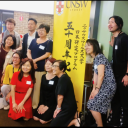第113回
Japanese Culture
オージーに英語で説明してみよう!
日本人には常識でも、文化の違うオージーにはイマイチ伝えづらい……。そんな時にぴったりの表現や話の流れをご紹介。
文:池田俊一 オーストラリア国立大学アジア・太平洋カレッジ日本センター
協力:池田澪奈
What is hatsumōde?
「初詣」って何?
「友達が『初詣に行きたいけど、コロナ禍で難しいのかな』と言っていたけれど、これってどういう意味?」
Aussie: Where do they want to go?
Aussie: Oh, I see. Is it customary to visit these temples/shrines during that time?
You: Yes, it is. Generally, wishes and prayers for happiness and good fortune in the coming year are made, with the most popular temples and shrines attracting millions of visitors over the three days.
Aussie: Wow, really! It must get absolutely jam-packed then.
You: Oh, yes it does. People can expect to wait a long time to even get into the temple/shrine grounds, with long queues forming at the most popular locations, such as Sensōji temple and Meiji Jingū shrine in Tokyo.
Aussie: It’s a stark contrast to over here – New Year’s Day is usually quite dead, on the morning after the festivities of New Year’s Eve.
You: I know – I once went shopping on New Year’s Day over here, but half the stores weren’t even open!
Aussie: Apart from the brief moment of communion with the Gods, is there anything else people do while they are there?
You: Most temples and shrines offer 御神籤 (omikuji), which are fortune slips that predicts your luck for the year ahead. You draw a number at random and exchange it for a corresponding fortune – the small paper slip has your overall level of fortune for the year (for which there are 5-12 different levels!), along with more specific details about your prospects in various areas of life, such as work, health and love.
Aussie: Oh, well that sounds like fun.
You: These days, some larger temples and shrines offer their omikuji in English as well, so next time you’re in Japan during the new year period, you should definitely try to go to 初詣.
Aussie: I’d be keen. I don’t generally like lining up for things, but I’ll have to make an exception.
説明する時のポイント
「初詣」という言葉は、文字通り「初めて詣出る=お詣りに出掛ける」という意味で、新年を迎えて神社や寺院を訪れる初めての日に、神様や仏様に、前の年の感謝を捧げたり、その年の無事、平安、幸せなどを祈ったり、願い事の成就を頼んだりすることをいう、と教えてあげよう。新年になってから初めての日ならいつでもいいわけだが、通常、日本では休日である正月の三が日に出掛けることを指すと付け加えておこう。この習慣は明治時代半ばに国鉄(現JR)や民間鉄道会社(私鉄)が神社や寺院と示し合わせて、遠方の有名社寺に初詣をする風習を作り出したとされているという意外な事実にも興味を持ってもらえるかもしれない。社寺に参拝して、社務所でお守り、破魔矢、風車、熊手などを買ったり、絵馬に願い事や目標を書いたりして、その年が良い年であるよう祈るということも忘れずに。
【単語・成句】
off work 休暇
customary 慣習/しきたり
absolutely とてつもなく
jam-packed すし詰め
can expect to ~ 〜を余儀なくされる
ground(s) 境内
queue(s) 列/行列
stark contrast 全く対照的
dead 活気のない/火の消えたような
festivities お祭り騒ぎ
communion 心の交流/霊的交感
fortune 運/運命/運勢
draw 引く
at random 成り行き任せに/任意に
corresponding 一致する/対応する
prospect(s) 見通し/展望
~ as well 〜も
should ~ 〜してはどうか/〜することを勧める
definitely ぜひ
I’d be keen. もちろんそうするつもり。
exception 例外
【会話文で使える表現】
“apart from ~” という言い方は、「〜はさておき、〜は別として」という意味を表す表現で、主に文の始めに使われる。
【例1】
“Apart from its cost, this plan is worth pursuing.” “Great, we will begin preparations soon.”
「費用の点を除けば、この計画は更に進める価値があるね」「よかった。すぐに準備を始めるよ」
【例2】
“Apart from his occasional vulgar expressions, he is a good speaker.” “I agree.”
「あの人は、時々粗野な言葉遣いをするが、話が上手だ」「同感だね」
【例3】
“How did the online seminar go?” “Apart from the technical glitch, it went well.”
「オンラインによるセミナーはどうだった」「ちょっとした機器の問題を除けば、滞りなく終わったよ」












You: It sounds like they want to go to 初詣 (hat su mōde). Hatsu mōde is the first Buddhist temple or Shintō shrine visit of the new year. Many people visit on either the first, second, or third day of the new year, as most people are off work from December 29 until January 3.